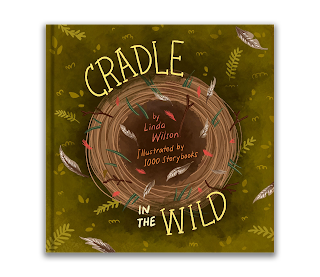 |
| One of the most rewarding experiences of my writing career was to see how much this little girl enjoyed Tall Boots |
By Linda Wilson @LinWilsonauthor
As you go about marketing your books, try to envision A+ content on your Amazon author page, and what it could do for your sales. What is A+ content? Visit the sales page of any of your favorites books, scroll down a smidge, and you might see an attractive, very large display of a bold title, with perhaps quotes from reviews, photos, and choice illustrations from the book. If the first book you search doesn’t have A+ content, keep looking. A+ content is getting more and more popular. You will find it, and when you do, watch out. You might get hooked!
A company I’ve been working with for years now, 100 Covers, acquainted me with A+ content in an email. 100 Covers can produce content that dazzles. I know, because the company created stunning A+ content for my book, Tall Boots. Go to the page, scroll down, and you will see how our joint efforts turned out: https://www.amazon.com/Tall-Boots-Linda-Wilson/dp/1735131016/ref=sr_1_1
Good Fortune Fell on My Doorstep
The photos of the young reader and permission to use her photos virtually fell in my lap. I had sent the book to one of my relatives. She shared it with her friend and her friend sent me a photo of her daughter reading the book because she enjoyed it so much. I asked for her permission to use the photo and she sent me more photos! Out of all my experiences with my readers, my connection with my relative and this family has been one of the most rewarding experiences of my career.
The rep and artists at 100 Covers did the rest. They took the title from the cover and interior illustrations, and voilà, the finished product was ready to post--almost.
Creation of A+ Content is Free and Doable Yourself
Amazon offers creation of A+ content at no charge. Videos can be included in your content. Here is a summary of how it works, courtesy of Google:
How to create Amazon A+ Content
1. In seller central, hover over Advertising > A+ Content Manager.
2. Click 'Start creating A+ content'. ...
3. Add content name and language. ...
4. Then, click 'Add Module'.
5. Choose your modules. ...
6. Apply to your ASIN(s).
7. Review and submit for approval.
Whether you’re creating A+ content yourself or having a company create it for you, you will find templates in which you need to fit your content. It wasn’t difficult for me to navigate the template I chose. The templates are specific, and when I went to post my Tall Boots content, I found that word counts were specific and short. My blurbs were too long. To get it right, I simply needed to edit the blurbs I had written to be much shorter than I had first intended.
Once you’re finished, Amazon reviews your content before allowing it to be published. My content was not accepted at first. Amazon made it clear why, so there was no guess work involved. They asked me to remove one short sentence because it sounded like a sales pitch. I didn’t agree. I thought the sentence only encouraged readers to follow the character’s example in the story, to discover courage they already possess to reach their goals. But I had no problem deleting the sentence. Once I did that, Amazon accepted the content and posted it soon after.
My picture book, A Packrat’s Holiday: Thistletoe’s Gift, is next in line. The A+ content for it is being created now, as I write, by 100 Covers.
I may never know if A+ content helps my book sales, but like everything else in writing for children, it’s fun, and best of all, it’s free!

My latest picture book, Cradle in the Wild
is now available: amzn.to/3Pj6Puu
Find Linda’s books at Amazon Author Page.














